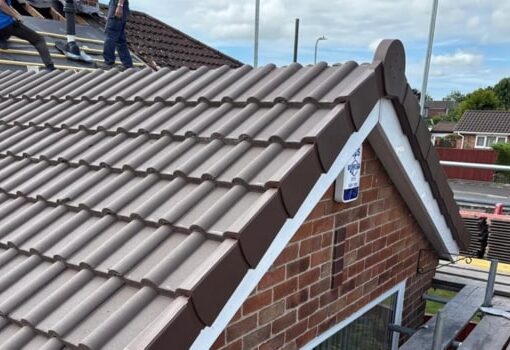What Insurance Is Needed to Open a Child Care School?

Opening a child care school is an exciting journey, but it also comes with huge responsibilities. You’re not just shaping young minds—you’re also ensuring their safety and protecting your business from unexpected risks. That’s where insurance comes in.
Having the right insurance coverage is not optional; it’s essential. From accidents and property damage to legal claims, proper insurance shields your school, your staff, and the children under your care.
In this comprehensive guide, we’ll break down the types of insurance you need, why each one matters, and answer the most common FAQs so you can confidently prepare your child care school for success.
Why Insurance Is Crucial for Child Care Schools
Running a child care school means dealing with children, parents, employees, and lots of moving parts. Even with the strictest safety measures, accidents happen—and they can be costly.
Imagine these scenarios:
- A child falls and breaks an arm on the playground.
- A teacher is accused of negligence.
- A fire damages your classrooms and learning materials.
- An employee gets injured while lifting heavy supplies.
Without proper insurance, you could face lawsuits, medical expenses, or property losses—all out of your own pocket. The right policies ensure your school remains financially secure and reputable.
Essential Insurance Types for a Child Care School
Here’s a complete list of the must-have insurance policies for child care centers, explained simply:
1. General Liability Insurance
Covers: Accidents, injuries, and property damage.
General liability insurance is the backbone of protection for any child care school. If a child trips, a parent slips, or a visitor’s property gets damaged, this policy covers medical costs and legal expenses.
Example:
A child accidentally hits their head while playing. The parent files a claim. Your policy pays for medical bills and legal defense costs.
2. Professional Liability Insurance
Covers: Claims of negligence, inadequate supervision, or mistakes in care.
Child care schools are responsible for children’s safety, learning, and well-being. If a parent claims you failed to provide proper care, this coverage protects you from lawsuits.
Example:
A parent alleges their child was left unsupervised and suffered harm. Professional liability insurance covers legal defense and settlements.
3. Abuse and Molestation Coverage
Covers: Allegations of physical, emotional, or sexual misconduct.
This is one of the most sensitive but critical policies. Even if allegations are false, defending your school against such claims can be financially devastating. Many states and licensing boards require this coverage for child care schools.
4. Property Insurance
Covers: Buildings, furniture, toys, teaching materials, and playground equipment.
From fires to theft, property insurance keeps your school safe from costly losses. Even if you rent your facility, you’ll still need coverage for your equipment and materials.
Tip: Combine this with liability coverage under a Business Owner’s Policy (BOP) to save costs.
5. Workers’ Compensation Insurance
Covers: Employees’ medical expenses and lost wages if they get injured at work.
In most states, workers’ comp is legally required if you have employees. It protects both your staff and your business.
Example:
An assistant teacher injures her back while lifting a child. Workers’ comp pays for her medical bills and time off work.
6. Business Interruption Insurance
Covers: Lost income and expenses if your school must temporarily close.
Natural disasters, fires, or unexpected events can force you to shut down. Business interruption insurance ensures you can still pay rent, salaries, and bills while recovering.
7. Commercial Auto Insurance
Covers: Accidents, injuries, and damage involving vehicles used for school purposes.
If your school offers pick-up and drop-off services or uses vans for field trips, your personal auto policy won’t cover it. You need commercial auto coverage.
8. Employment Practices Liability Insurance (EPLI)
Covers: Claims of wrongful termination, harassment, or discrimination.
Managing staff can lead to HR-related disputes. EPLI protects your school from expensive lawsuits brought by employees.
9. Umbrella Liability Insurance
Covers: Costs that exceed your other policy limits.
If your school faces a major lawsuit, your general liability and professional liability policies may not be enough. Umbrella insurance provides extra protection when standard policies max out.
Tips to Choose the Right Insurance for Your School
1.Understand State Requirements
Some states mandate specific coverage for licensed child care schools. Check with your local licensing authority.
2.Work With a Child Care Insurance Specialist
Regular insurance agents may not understand the unique risks in child care. Choose someone experienced in this field.
3.Bundle Policies for Better Rates
Many insurers offer discounts if you combine liability, property, and workers’ comp.
4.Review and Update Annually
As your school grows, your coverage needs will change. Always reassess your policies.
Final Thoughts
Opening a child care school is rewarding, but it comes with high responsibilities. The right insurance protects your students, staff, and business from unexpected risks—giving parents peace of mind and keeping your operations secure.
From general liability to workers’ compensation and property coverage, having the right mix of policies ensures your school runs smoothly and stays compliant with licensing laws.
Think of insurance not as an expense, but as an investment in safety, trust, and long-term success.
FAQs:
Is insurance required to open a child care school?
Yes, in most states, liability insurance is mandatory before you can get licensed. Some states also require abuse coverage and workers’ comp if you hire employees.
Do I need insurance if I run a home-based child care?
Absolutely. Your homeowners insurance won’t fully protect your business. You’ll need separate policies to cover accidents, injuries, and property damage related to child care.
Can parents sue a child care school for accidents?
Yes. If a child gets hurt, parents may pursue legal action—even if the accident was minor. Having general liability and professional liability coverage protects you financially.
Does insurance cover field trips and off-site activities?
Only if you have commercial auto and liability coverage that extends to off-site events. Always confirm with your provider before organizing trips.







Leave a Comment